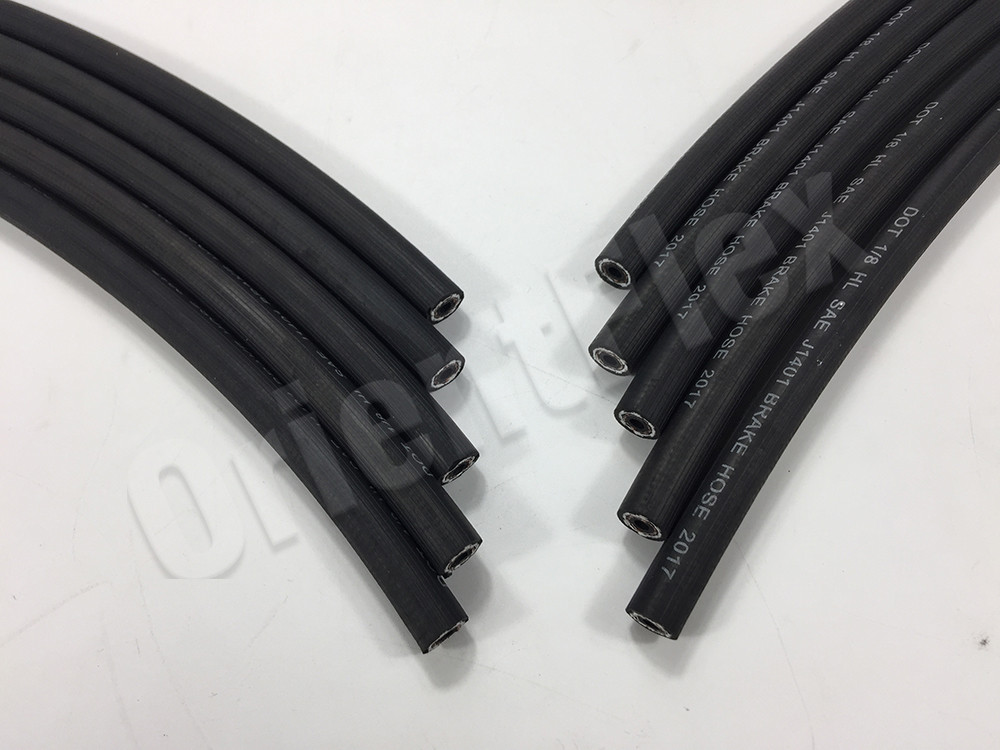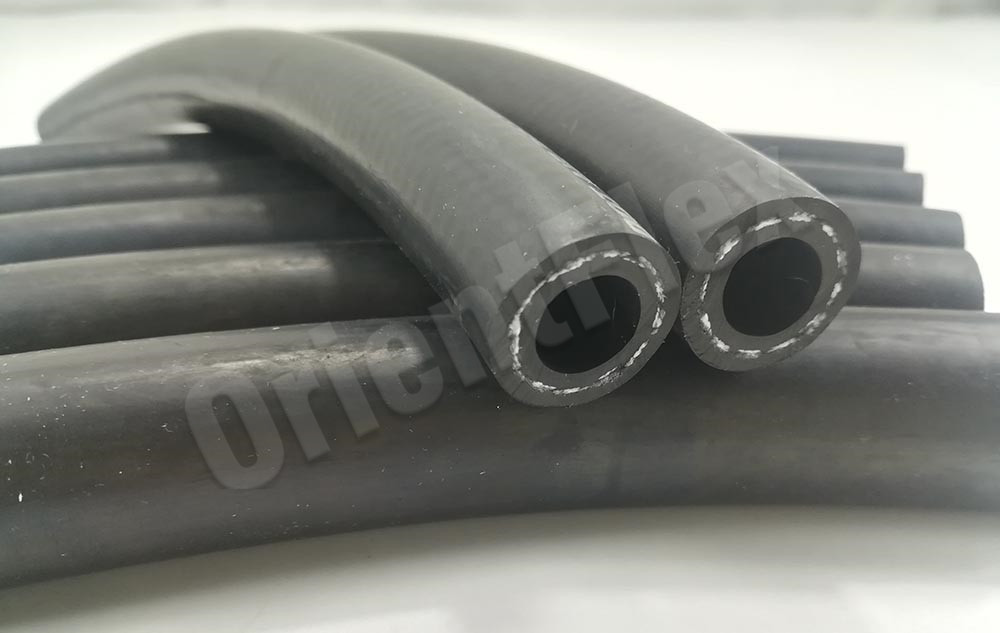If a brake hose fails in a car, it can lead to dangers. While the concrete presentations can be as the following.
Loss Braking Power
A failed brake hose can result in a loss of compressed air transfer. This means the brakes may not engage properly when the driver applies the brake pedal. Then it will reduce the brake effect.
Reduce Stopping Distance
With compromised braking power, the vehicle’s stopping distance increases. This can lead to an increased risk of accidents, especially in emergency.

Brake Fluid or Air Leakage
Rubber air brake hose can fail due to wear, corrosion or damage. Then this will cause leakage of brake fluid or compressed air. Brake fluid leaks can lead to a loss of hydraulic pressure. While air leaks can prevent proper actuation of the brake mechanisms.
Brake Pedal Feel and Responsiveness
A failed rubber brake hose may cause changes in brake pedal feel and responsiveness. The pedal may feel spongy or require increased effort to engage. So it will be difficult for the driver to modulate braking force effectively.
Increase Overheating Risk
In hydraulic brake systems, a failed brake hose can lead to fluid leakage. Then this will cause a decrease in the hydraulic fluid level. This can cause the remaining fluid to overheat more quickly. Then it will lead to brake fade, a condition where the brakes become less effective.

Potential for Wheel Lock-Up or Skidding
In extreme cases, a sudden brake hose j1401 failure can cause one or more wheels to lock up or skid, especially if the failure occurs on one side of the vehicle. This can result in loss of control and increased risk of accidents. Particularly in adverse road conditions such as wet or icy surfaces.
In a word, brake hose failure can lead to a series of problems. In addition, it will seriously affect your driving safety.